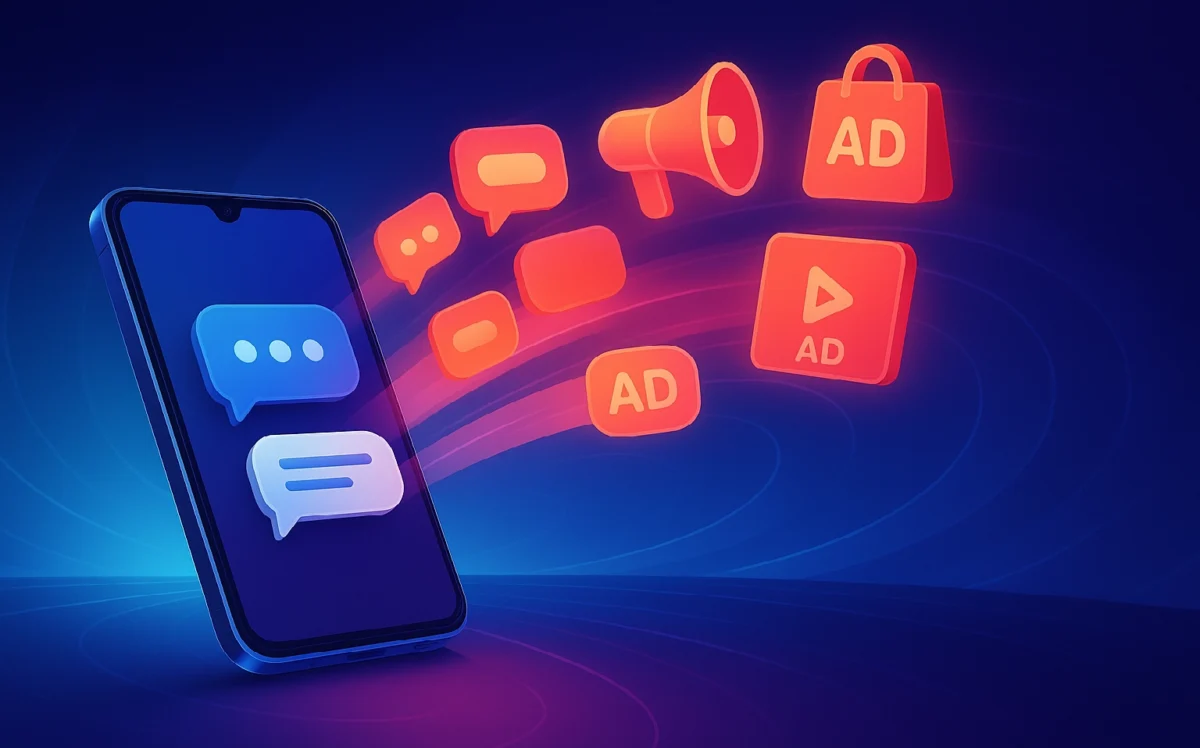Meta has announced that starting December 16, 2025, it will begin using conversations with Meta AI — including text, voice, and interactions — to personalize the ads and content you see across Facebook, Instagram, and WhatsApp. This policy shift means your AI chats won’t just assist you; they’ll actively shape the recommendations and ads that appear in your feed, as first reported by Reuters.
What Exactly Is Changing?
Until now, Meta’s personalization relied heavily on likes, follows, and engagement signals. With the new policy, your conversations with Meta AI become part of the mix.
- If you ask about hiking trails, you might later see ads for boots or posts about outdoor destinations.
- Chats involving text, images, or voice queries could all contribute to your ad profile.
- Meta says “sensitive topics” such as religion, politics, race, and health will not be used for targeting, according to The Verge.
- Importantly, there is no way to opt out — the only way to avoid this new data stream is by not using Meta AI at all.
The company has confirmed that users will start receiving notifications about this change from October 7.
Why This Matters
This move signals a deeper integration between AI interactions and advertising models.
- Stronger personalization: Conversations often reveal interests not visible from likes or follows, giving Meta a richer profile.
- Blurred boundaries: Asking Meta AI something in WhatsApp could influence ads you see on Instagram, notes Financial Times.
- Trust and privacy concerns: Users who already feel closely tracked by social platforms may see this as a new level of surveillance.
- Regulatory tension: The rollout excludes the UK, EU, and South Korea for now due to stricter data laws.
What Rules Meta Is Offering (and Their Limits)
| Rule / Claim | What Meta Says | Possible Weakness |
|---|---|---|
| Sensitive topics excluded | AI chats about religion, health, sexuality, politics won’t fuel ads | Definitions and filters may not always be accurate |
| No opt-out | AI-chat data is included by default | Users lose meaningful control |
| Regional rollout limits | Initially not applied in EU, UK, South Korea | Could expand later if rules shift |
| Encrypted chats excluded | Private encrypted conversations remain untouched | Users may still feel uneasy about blurred lines |
Risks, Questions & What This Could Lead To
- Filter errors: Harmless queries might still influence ad targeting.
- Echo chambers: Highly personalized ads may reinforce narrow interests.
- Privacy pushback: Advocacy groups may challenge this in courts or regulators may intervene.
- Advertiser appeal: For brands, this represents a highly valuable new stream of behavioral data.
Academic research has also warned that mixing conversational AI and advertising risks creating experiences that feel manipulative once users realize their chats are part of the targeting system, as highlighted in arXiv.
Frequently Asked Questions
Q: Will Meta publish or read private chats?
A: No. Only interactions with Meta AI are included, while private encrypted chats remain excluded.
Q: Can I stop this?
A: Not directly. Unless you stop using Meta AI, your chats will be factored into personalization.
Q: Will this apply everywhere?
A: Not immediately. The rollout excludes regions with stricter privacy rules, though this may change in the future.
What Could Happen Next?
- Expansion into new AI tools like AR glasses or smart assistants.
- Possible regulatory challenges in Europe and beyond.
- Increased competition from platforms marketing stronger privacy protections.
Key Takeaway:
By weaving AI chat history into ad targeting, Meta is deepening its personalization model. What feels like a helpful assistant could also become another layer of the advertising machine that shapes what you see, think, and buy.
Last Updated on October 18, 2025 by Lucy




